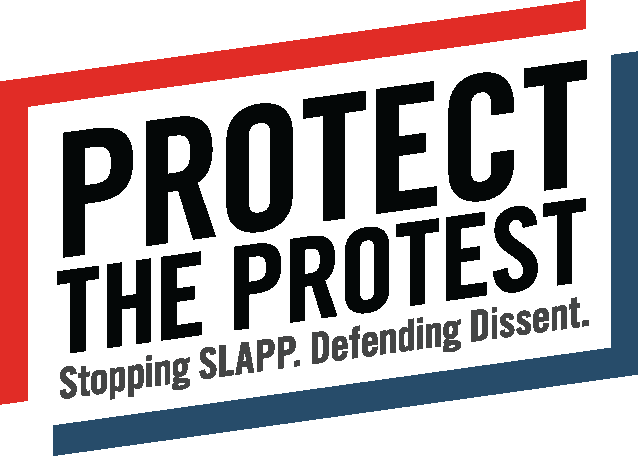In Solidarity with Campus Protestors
Students come together on college campuses almost daily to demonstrate against injustice and raise their voices about climate change, DREAMers, and other issues they believe in, because protest works. Without the right to speak up, we cannot achieve equal rights for women and people of color, fair wages and working hours, or clean air and water.
As defenders of dissent, the Protect the Protest task force denounces the repressive crackdowns against student protestors and faculty on college campuses. For seven months, people across the United States have demanded an end to what the the University Network for Human Rights and other independent legal experts call Israel’s genocide against Palestinians in Gaza, and to the U.S.’s funding of these atrocities. Since the protest encampment at Columbia University that began on April 17, students have started nearly 400 similar protests around the country, and even more around the world. This is a historic mobilization in protest of Israel’s atrocities in Palestine, and it continues to grow. With these protests, students have launched a platform to articulate clear and actionable demands to their administrators: disclose and divest from companies that have ties to, or profit from, business with Israel.
Most university administrators have responded swiftly with punitive measures against student protestors for simply exercising their rights to freedom of expression and assembly. These inordinate responses range from biased disciplinary hearings to suspensions and firings to the call for police to invade campuses and arrest students. Police have repeatedly and aggressively confronted student protestors on campuses who are engaging in peaceful protest – what even President Biden called “the best tradition of how Americans respond to consequential issues” – to arrest students and faculty with the use of flashbangs, rubber bullets, and teargas.
These repressive tactics are not new. The suppression of campus activists’ speech in support of Palestinian liberation is also not new. Free speech advocates have long identified this phenomena prior to the current moment as the “Palestine exception” to describe the uneven application of speech protections to those who speak out for Palestinian rights in any capacity. This exception is even more prominent on college campuses today and its intensification is alarming, with potentially wide-spread insidious implications if left unchallenged.
“This is part of a McCarthyist witch-hunt against people who are speaking for Palestinian liberation,” said Lina Assi, Palestine Legal’s Advocacy Manager. “Universities' decision to deploy law enforcement forces to violently crackdown on students is not only a brutal suppression of students’ speech rights, it is the racist and militarized repression of a movement that is dissenting against a U.S.-backed genocide. Institutional failure to uphold rights to free expression and to end the racist targeting of Palestinian and allied communities will only accelerate the erosion of the very protections that make dissent – and therefore democracy – possible.”
Boycotts and calls for divestment are constitutionally protected forms of protest and are a proven tactic in fights for social justice. Building off of the successful anti-apartheid campaign of South Africa, anti-apartheid Palestinian activists and their supporters have utilized a Boycott, Divestment, and Sanctions (BDS) strategy for years – an effort being advanced by the protests on U.S. campuses right now. Those familiar with the BDS movement know that attacks against it are pervasive and well-funded. It is not surprising that campus protestors, pushing their universities to divest from Israel, are facing intense repression and a misrepresentation of their demands.
“Students across the country are calling for an end to their university’s and government’s support for Israel's genocide in Gaza. Instead of heeding their call, university administrators have attacked, brutalized, and tried to silence them,” said Center for Constitutional Rights staff attorney Astha Sharma Pokharel. “But this student movement is on the right side of history, on the side of justice and liberation, and just like the many historic movements for social justice that we are all so familiar with, it will continue to grow in defiance of efforts to stifle it.”
Protect the Protest condemns these breaches of our most foundational rights. We stand in absolute solidarity with students, faculty, and all others protesting the atrocities in Gaza and advocating for a permanent ceasefire. Our coalition was founded with the understanding that “an attack against one is an attack against all.” We must not allow the “Palestine exception” to prevent this solidarity from being extended to students risking their futures to support an end to the atrocities being committed in Gaza that a majority of people in the United States already agree must end.
“We all deserve to live in a society where we can speak our mind without fear of punishment. Just like voting or contacting elected officials, protest is an important way for everyday people to influence how governments make decisions about our air, water, land, and war,” said Audrey Caines, Program Coordinator of the Protect the Protest Task Force. “These students are responding to their universities’ complicity in genocide by using the very democratic tradition of speaking out against injustice and those in power must listen.”
